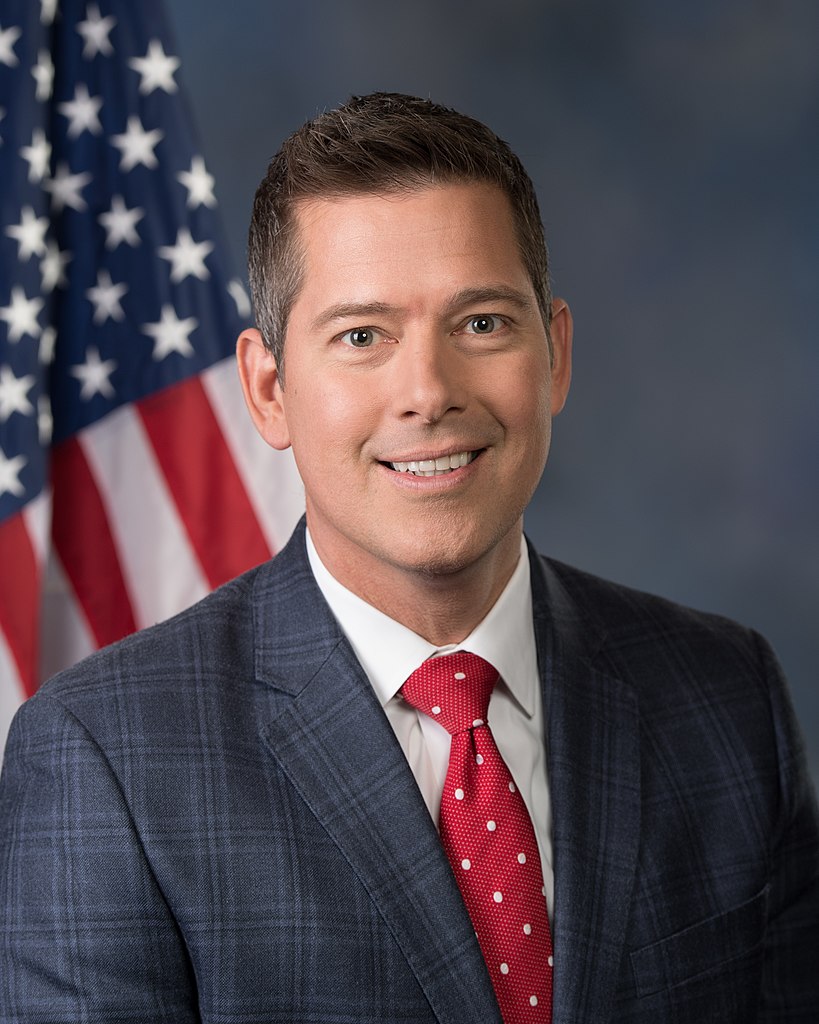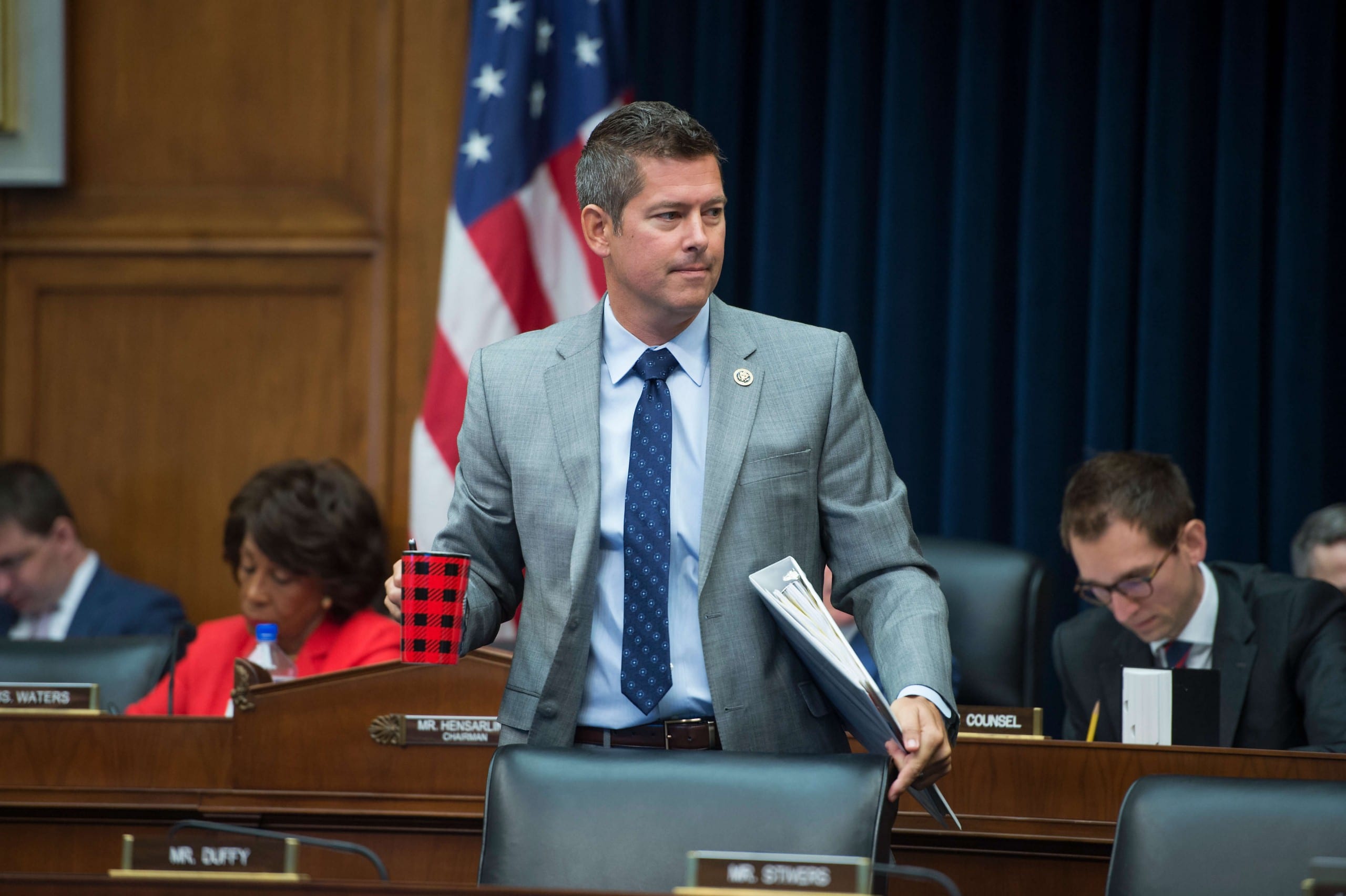Sean Duffy: Former Congressman's Career & Resignation Explained
Could a burgeoning family and a looming health crisis truly reshape the career trajectory of a seasoned politician? Sean Duffy's abrupt departure from Congress, a decision announced amidst both personal tribulations and professional successes, provides a compelling case study of the human element in the high-stakes world of politics.
The political landscape, often portrayed as a stage for grand pronouncements and strategic maneuvers, is invariably shaped by the quiet, deeply personal decisions of the individuals who inhabit it. Duffy's story, punctuated by a sudden resignation and a shift in priorities, serves as a poignant reminder that even the most ambitious political careers can be profoundly influenced by the complexities of life beyond the Capitol. His decision, made public in a Facebook post, to step down from his role representing Wisconsin's 7th congressional district in 2019, sent ripples through the political establishment. His stated reason, the need to focus on his family, hinted at a deeper, more intricate narrative playing out behind the scenes.
| Category | Details |
|---|---|
| Full Name | Sean Patrick Duffy |
| Date of Birth | October 3, 1971 |
| Place of Birth | Hayward, Wisconsin, USA |
| Political Party | Republican |
| Education | B.S., St. Mary's University of Minnesota; J.D., William Mitchell College of Law |
| Profession | Politician, Prosecutor, Former Sports Commentator |
| Political Career | U.S. Representative for Wisconsin's 7th congressional district (2011-2019) |
| Previous Positions | District Attorney, Ashland County, Wisconsin |
| Key Legislation/ Initiatives | While in Congress, Duffy focused on issues related to natural resources, economic development, and healthcare. Specific legislative initiatives are available on GovTrack.us. |
| Family | Married to Rachel Campos-Duffy; has nine children |
| Reason for Resignation | To care for a daughter with a heart condition and focus on family. |
| Relevant Websites | GovTrack.us - Sean Duffy |
The announcement itself, made public in a Facebook post on a Monday morning, immediately generated headlines. It was a move that defied the usual cadence of political strategy, and rather, it appeared to be a direct communication to the public, stripped of the usual layers of spin and carefully crafted messaging. The reasons he cited the pressing need to attend to family matters, specifically the health concerns of a then-unborn child injected a level of vulnerability into the narrative that is often absent in the political arena. Duffy's departure meant Wisconsin would need to prepare for a special election to fill his seat.
Duffy's journey into the political sphere began long before his election to Congress in November 2010. Before becoming a Congressman, Duffy had served as a district attorney for eight years, gaining experience and understanding the nuances of law. His early career provided a strong foundation upon which he would build his political platform, and gave him invaluable insight into the concerns of his constituents. The transition from prosecutor to politician was a natural progression, highlighting his dedication to public service and his ability to connect with the issues that mattered most to the people he aimed to represent.
Elected to represent Wisconsin's 7th congressional district, a seat he would win five times, Duffy quickly established himself as a notable figure within the Republican Party. His ability to secure re-election demonstrated a sustained level of support within his constituency and a proven capacity to connect with voters, and also showed a shift in Wisconsin Politics. He represented a district that stretched across northern Wisconsin, a constituency with specific needs and concerns that he worked to address. His conservative principles resonated with the district's voters, allowing him to consistently win elections.
The news of his resignation, however, was not just a political shift, but a deeply personal one. The circumstances surrounding his departure painted a different picture, a poignant one of a father prioritizing his family's well-being. The announcement came as he and his wife, Rachel Campos-Duffy, were expecting a child with a diagnosed heart condition. The decision to step down was a direct response to this medical reality, a move motivated by a desire to devote his time and energy to supporting his family during a challenging time. This move demonstrated the deeply personal choices that can significantly influence the most accomplished political careers.
The sudden nature of Duffy's departure, coupled with the reasons he provided, sparked much discussion. It was a moment that forced the public to consider the human side of politics, to reflect on the personal sacrifices often made by those in public service. The weight of political office, the demands of a demanding schedule, and the constant scrutiny can take a toll. His decision was a recognition of the finite nature of time and resources, and a bold statement on what mattered most. This, in turn, raises questions about the nature of commitment to public service.
The details that emerged after his departure further illuminated the complexities of his decision. The diagnosis of a heart condition in his unborn child added an additional layer of urgency to his choice. The need to focus on his family's health became paramount, overshadowing all other considerations. This was not just a career move but a crucial choice that put the well-being of his family above all else. His resignation became a story about putting family first, which resonated with a great deal of the population. It was a powerful statement about the choices people make in the face of personal hardship.
Duffy's departure from the political stage was not without precedent. Many politicians have, at different times, found themselves torn between their public duties and their personal obligations. His decision to step away was a reflection of a larger trend where politicians are increasingly recognizing the need to balance their public and private lives. This reflects the evolving nature of the political landscape and the growing recognition of the human side of political figures, a story which made its mark in the news, creating discussions about politicians' private lives.
The implications of Duffy's resignation extended beyond his personal circumstances. The need for a special election to fill his vacant seat demonstrated the ripple effect of his decision. Such elections can alter the balance of power and can have an effect on the direction of policy-making. His departure therefore had a significant impact on the political landscape of Wisconsin and beyond. The process of selecting a new representative brought local issues to the forefront and gave voters a chance to reconsider their political priorities.
Furthermore, Duffy's decision brought attention to the challenges faced by families in the political arena. The demands of public life often make it difficult for politicians to spend quality time with their families, and there are often many sacrifices made to perform their duties. His story offered a glimpse into the sacrifices that are often made, which also prompted further conversations about work-life balance for those in the public eye. It highlighted the need for support systems and understanding from colleagues, and emphasized the human aspect of public service.
The absence of Duffy's voice in Congress brought a shift to the political discourse of Wisconsin. The issues he championed, the perspectives he brought to the table, and the relationships he had cultivated were immediately absent. The transition meant new voices would rise and different priorities would be set. The policy discussions were reshaped and highlighted the importance of stability.
Duffy's story is also a reminder of the broader trends in modern politics. There is an increase in transparency, and scrutiny, which is often amplified by social media. Decisions are no longer made behind closed doors but are communicated directly to the public. This shift has made it easier for politicians to connect with constituents. The ease with which Duffy announced his departure, through a Facebook post, became a stark example of this trend.
In assessing Duffy's legacy, one must consider the totality of his contributions. His service in the House of Representatives, his work as a district attorney, and his commitment to public service collectively shaped his identity. While the manner of his departure may be remembered, it should not overshadow the positive contributions he made. The personal sacrifices he made in the service of his community also are of importance.
The long-term impact of Sean Duffys decision to resign from Congress remains to be seen. But it serves as a reminder that the choices made by political figures are rarely simple. In a career marked by public success and private challenges, Duffy's story stands as a testament to the enduring impact of personal priorities, and the often-unseen forces that can influence the trajectory of even the most prominent of political careers.


/cloudfront-us-east-1.images.arcpublishing.com/gray/FFE52J2ZZNKGZO54N6KI5DN6B4.png)
Detail Author:
- Name : Branson Gulgowski
- Email : leffler.tabitha@turner.info
- Birthdate : 1979-06-09
- Address : 11938 Alexandro Streets Jaycestad, ID 72889-9514
- Phone : 1-951-665-7918
- Company : Spencer-Jones
- Job : Streetcar Operator
- Bio : Est numquam temporibus et rerum. Nisi quo quo qui. Qui sint quo tempore suscipit aut. Delectus nihil neque alias officiis praesentium.